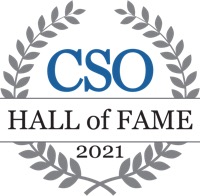The value of professional certifications
2013-02-25
Context: this afternoon, I’ll be joining a panel at RSAC (PROF-M03; Room 302 at 1450) titled “Information Security Certifications: Do They Still Provide Industry Value?”
Much ado is made about the relative merits of various certificates, certifying test, and administering organizations. Before arguing the value of those, we should first assess what intrinsic value a professional certificate might have; understanding the various models, and then see which fit the information security industry.
One model is the guild certificate - a certificate of competency, generally issued to a journeyman or master of their craft, which acknowledges their capability at their preferred trade. The building trades are the most common like this; but medical professionals, lawyers, and pilots are all examples. As purchasers of services, consumers like to know that the purveyor meets a minimum standard of the craft. Guild certificates are especially preferred where quality of work is important, but there tends to be a set of common tasks performed within the profession.
Another model, often a special case of a guild certificate, is the practitioner’s certificate, which is a certificate, generally issued directly or indirectly by a governmental organization, permitting an individual to practice on your behalf. Consider the CPA: an individual who is allowed to practice accounting before the government; and you are shielded from (some) liability for errors they make. Building inspectors are another example; practitioner’s certificates let us know that in trusting an individual, we don’t necessarily have to inspect their work. Practitioner’s certificates are especially effective where there is exactly one correct way to solve a problem or accomplish a task.
Yet a third model is the reputational certificate. A reputational certificate identifies a person as a member of a clique. Membership in that clique might imply certain capabilities, but is no guarantee. A college diploma, membership in a professional organization, or employment in a given company are examples of reputational certificates. A reputational certificate represents a transfer of the reputation of existing members to a new member: the first time you meet someone from MIT, you might accord them respect on the assumption that they are as competent as other MIT graduates. But reputation is a two-bladed sword: If you know a lot of incompetent people who joined The Southwest Weasel Security Association, you’ll judge the next person you meet from there as equally incompetent.
So what then, are infosec certifications?
There exist focused, guild certificates, often administered by a vendor: consider the CCIE or MCSE as general examples. But most certifications offered are more reputational: they bear the trappings of a guild certificate, like a common body of knowledge, or coursework, but given the lack of a common craft or single set of solutions in the industry, there is no general purpose guild certificate. Infosec is not unique in this case; sales professionals or product managers also have similar challenges.
And reputational certificates always devolve to the lowest common denominator: the value of the certificate will always devolve to the reputation of the lowest holder of the certificate, not the greatest.
Much ado is made about the relative merits of various certificates, certifying test, and administering organizations. Before arguing the value of those, we should first assess what intrinsic value a professional certificate might have; understanding the various models, and then see which fit the information security industry.
One model is the guild certificate - a certificate of competency, generally issued to a journeyman or master of their craft, which acknowledges their capability at their preferred trade. The building trades are the most common like this; but medical professionals, lawyers, and pilots are all examples. As purchasers of services, consumers like to know that the purveyor meets a minimum standard of the craft. Guild certificates are especially preferred where quality of work is important, but there tends to be a set of common tasks performed within the profession.
Another model, often a special case of a guild certificate, is the practitioner’s certificate, which is a certificate, generally issued directly or indirectly by a governmental organization, permitting an individual to practice on your behalf. Consider the CPA: an individual who is allowed to practice accounting before the government; and you are shielded from (some) liability for errors they make. Building inspectors are another example; practitioner’s certificates let us know that in trusting an individual, we don’t necessarily have to inspect their work. Practitioner’s certificates are especially effective where there is exactly one correct way to solve a problem or accomplish a task.
Yet a third model is the reputational certificate. A reputational certificate identifies a person as a member of a clique. Membership in that clique might imply certain capabilities, but is no guarantee. A college diploma, membership in a professional organization, or employment in a given company are examples of reputational certificates. A reputational certificate represents a transfer of the reputation of existing members to a new member: the first time you meet someone from MIT, you might accord them respect on the assumption that they are as competent as other MIT graduates. But reputation is a two-bladed sword: If you know a lot of incompetent people who joined The Southwest Weasel Security Association, you’ll judge the next person you meet from there as equally incompetent.
So what then, are infosec certifications?
There exist focused, guild certificates, often administered by a vendor: consider the CCIE or MCSE as general examples. But most certifications offered are more reputational: they bear the trappings of a guild certificate, like a common body of knowledge, or coursework, but given the lack of a common craft or single set of solutions in the industry, there is no general purpose guild certificate. Infosec is not unique in this case; sales professionals or product managers also have similar challenges.
And reputational certificates always devolve to the lowest common denominator: the value of the certificate will always devolve to the reputation of the lowest holder of the certificate, not the greatest.

